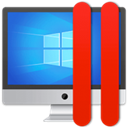Top QEMU Alternatives for Enhanced Virtualization
QEMU (Quick EMUlator) is a powerful, free, and open-source hosted hypervisor widely used for hardware virtualization. It excels at emulating CPUs and providing device models, allowing it to run a variety of unmodified guest operating systems. While QEMU is highly versatile, offering both full system emulation and an accelerated mode for near-native performance, users often seek QEMU alternatives for specific features, ease of use, or integration with their existing ecosystems. Whether you need a more user-friendly interface, better commercial support, or a different set of functionalities, there are several excellent options available.
Best QEMU Alternatives
If you're looking to explore other virtualization solutions beyond QEMU, this list provides a comprehensive overview of top alternatives, each offering unique benefits for different use cases.

VirtualBox
VirtualBox is a powerful x86 and AMD64/Intel64 virtualization product, serving both enterprise and home users. It's a free and open-source solution available across Mac, Windows, Linux, BSD, and Solaris. As a robust QEMU alternative, it offers features like virtualization, the ability to open VMDK files, and multiple language support.

VMware Workstation Pro
VMware Workstation Pro is a commercial hypervisor that enables users to create and run virtual machines on a single computer. Available for Windows and Linux, it's a strong QEMU alternative for those seeking premium features. It offers robust virtualization capabilities, support for Android Things, and is bundled with macOS (for specific use cases), along with multiple language support.

VMware Workstation Player
VMware Workstation Player builds on the industry-leading foundation of Workstation Pro, delivering a streamlined user interface for creating and running operating systems in virtual machines. As a free personal-use QEMU alternative for Windows and Linux, it focuses on core virtualization features and ease of use for running various operating systems.

KVM (Kernel-based Virtual Machine)
KVM (for Kernel-based Virtual Machine) is a full virtualization solution for Linux on x86 hardware containing virtualization extensions (Intel VT or AMD-V). It is a free and open-source QEMU alternative deeply integrated into the Linux kernel, offering excellent performance and features like extensibility via plugins and a native Linux-based virtualization environment.

Parallels Desktop
Parallels Desktop gives Mac users the ability to run Windows, Linux, or any other operating system and their critical applications simultaneously with macOS. As a freemium QEMU alternative specifically for Mac, it's ideal for running Windows software and provides seamless virtualization for various operating systems.

OpenStack
OpenStack is a global collaboration of developers and cloud computing technologists producing the ubiquitous open-source cloud computing platform for public and private clouds. While not a direct desktop hypervisor like QEMU, it's a powerful free and open-source web-based platform for managing virtualized resources, offering cloud IDE and web development capabilities on a large scale.

Portable Virtualbox
Portable-VirtualBox is a free and open-source software tool that allows you to run any operating system from a USB stick without separate installation. It unpacks and adjusts VirtualBox for portable use on Windows. This makes it an excellent QEMU alternative for those needing a truly portable virtualization solution, including support for GNU/Linux-libre systems.

BitBox
R&S®Browser in the Box (BitBox) offers enhanced protection, for example, against malicious email attachments. As a commercial QEMU alternative for Windows, it focuses on secure browsing through virtualization, utilizing web browsers based on Chromium and Firefox within a secure virtualized environment.

bochs
Bochs is a highly portable open-source IA-32 (x86) PC emulator written in C++, running on most popular platforms like Windows, Linux, AmigaOS, and MorphOS. It's a free and open-source QEMU alternative that focuses on complete x86 CPU emulation, offering features like Android Sync and general Linux compatibility for low-level system development and testing.

bhyve
bhyve (pronounced "bee hive") is a type-2 hypervisor that runs on FreeBSD. As a free and open-source QEMU alternative specifically for BSD and FreeBSD systems, it provides a native hypervisor solution for creating and managing virtual machines on these platforms.
Ultimately, the best QEMU alternative for you will depend on your specific virtualization needs, operating system, budget, and desired feature set. Explore these options to find the perfect fit for your projects, whether you prioritize open-source flexibility, commercial support, or specialized functionality.